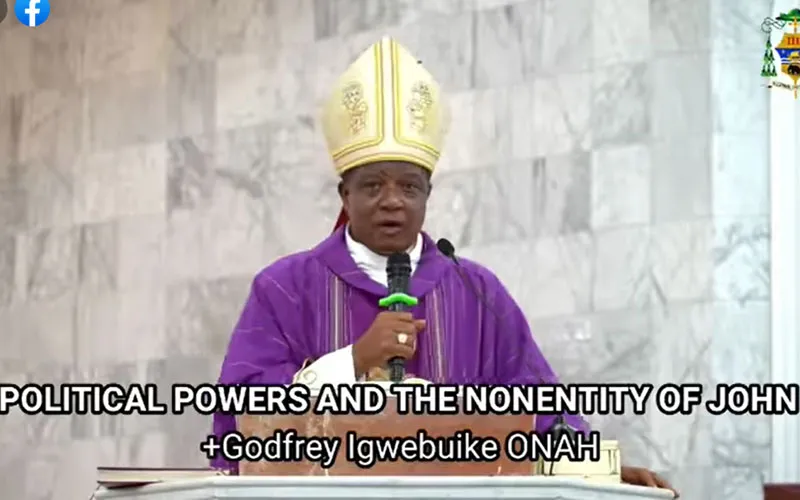Nsukka, 04 January, 2022 / 9:15 pm (ACI Africa).
Religious leaders are yielding to the temptation to act as social activists instead of speaking the mind of God, the Bishop of Nigeria’s Catholic Diocese of Nsukka has observed.
In a message published on Tuesday, January 4, Bishop Godfrey Onah invited all Religious leaders to follow the example of John the Baptist in the Bible who isolated himself from the rest of the society to seek guidance from God before speaking to the people.
“The temptation, even for Religious leaders of today in Nigeria, is to follow the political trend instead of remaining in isolation and prayer and being permeated by the word of God so that when they speak, they will be repeating the mind of God,” Bishop Onah said.
The Nigerian Bishop added in reference to Religious leaders in the West African country, “Some have become social activists, just repeating the exhortations and clamors of the crowd, picking up information from social media and creating fear and anxiety among the people.”
When such leaders speak, Bishop Onah observed, they are not even sure of what they are saying.








